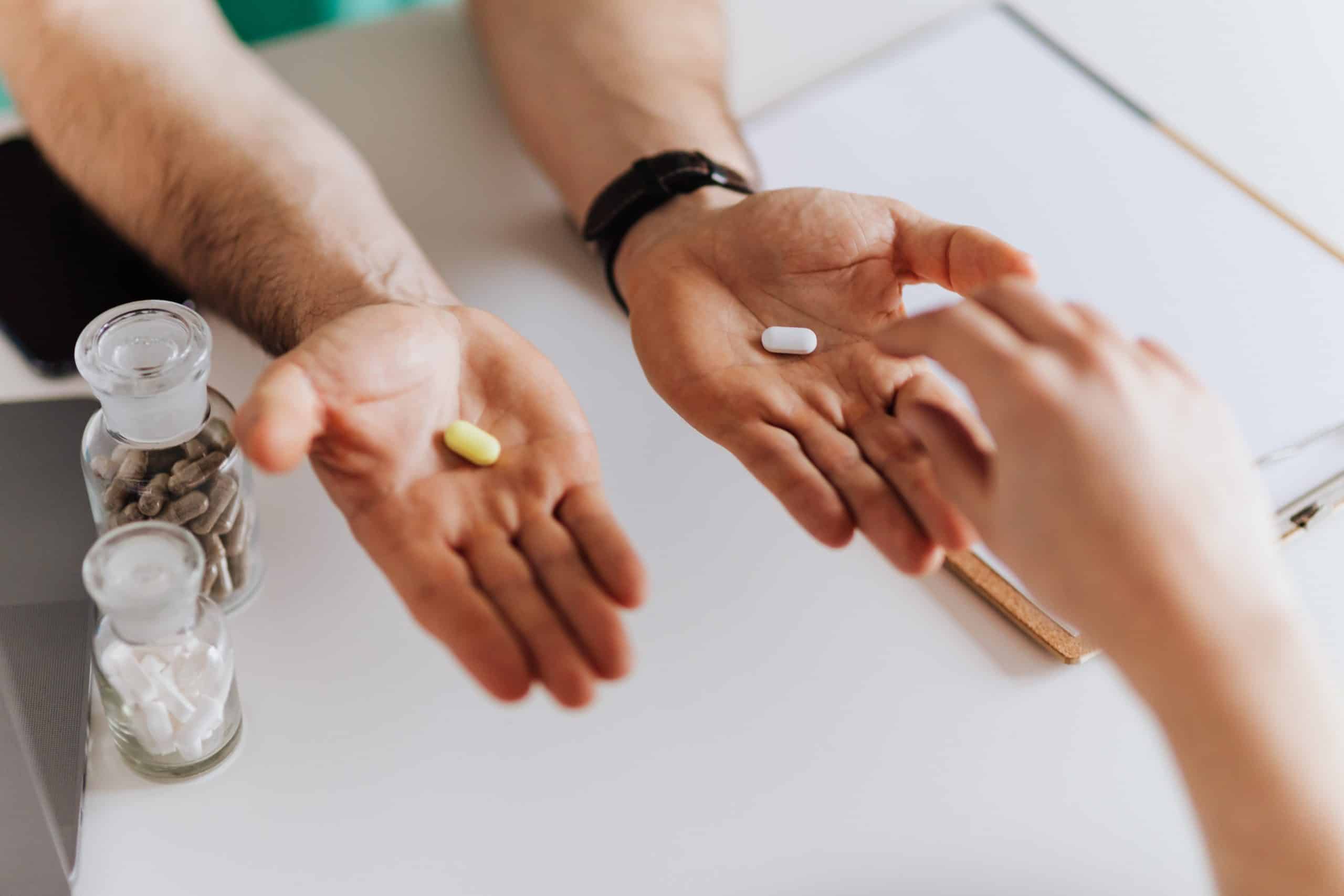One night a handful of years ago I was texting with this guy. I don’t remember what we were texting about. For some reason I want to say we were texting about pizza?  Anyway, let’s say it was pizza. We were just having a normal conversation, and then suddenly everything changed. His texts became strange. Words were poorly spelled. Some sentences were pure gibberish. I wondered if he’d overdone it at a party—while we were talking. I wondered if he was having a stroke. It occurred to me then that these texts were from a different person entirely. Someone had clearly broken in his home and stolen his phone. I imagined him lying on the carpet near his couch, maybe on the kitchen tile, knocked out, the door wide open, some youth texting me.
Anyway, let’s say it was pizza. We were just having a normal conversation, and then suddenly everything changed. His texts became strange. Words were poorly spelled. Some sentences were pure gibberish. I wondered if he’d overdone it at a party—while we were talking. I wondered if he was having a stroke. It occurred to me then that these texts were from a different person entirely. Someone had clearly broken in his home and stolen his phone. I imagined him lying on the carpet near his couch, maybe on the kitchen tile, knocked out, the door wide open, some youth texting me.  Then the texts stopped. I think I tried to call him, and nobody picked up. I fretted. Should I alert the police? What if he was just sick, or being weird, or one of his friends or even a random child—but whose?—had taken his phone? How embarrassing would it be if I treated this like an emergency when it was not, in fact, an emergency? In the end, I chose sleep. Thankfully, my intuition (and not my worst-case-scenario imagination) had been solid: Apparently he, too, had chosen sleep, only the Ambien-induced kind. In the morning he apologized and said it had kicked in while he was still awake, causing the wonky texts.
Then the texts stopped. I think I tried to call him, and nobody picked up. I fretted. Should I alert the police? What if he was just sick, or being weird, or one of his friends or even a random child—but whose?—had taken his phone? How embarrassing would it be if I treated this like an emergency when it was not, in fact, an emergency? In the end, I chose sleep. Thankfully, my intuition (and not my worst-case-scenario imagination) had been solid: Apparently he, too, had chosen sleep, only the Ambien-induced kind. In the morning he apologized and said it had kicked in while he was still awake, causing the wonky texts.  But that’s not even the weirdest thing this medicinal sleep aid can make you do. Read on for five of the strangest medication side effects, including more Ambien-induced weirdness.
But that’s not even the weirdest thing this medicinal sleep aid can make you do. Read on for five of the strangest medication side effects, including more Ambien-induced weirdness.
1. Eating in Your Sleep
As Sarah Fazeli writes for xoJane in “I Just Sabotaged My Perfect Weight Watchers Week By Sleep-Eating on Ambien,” consuming food while asleep is a real thing that happens to some people who take the magical sleeping elixir also known as Ambien.  (“If you take Ambien and miss the ‘window’ for falling asleep, you run the risk of Ambi-texting, Ambi-binging, Ambi-dialing, and Ambi-ing any other activity…” she writes. “Kind of scary.”) Fazeli says she doubled up on the dosage of the sedative–hypnotic med during a visit to her parents’ home, hoping the extra Ambien would counteract a change in time zone. (Though upping from 5 mg to 10 mg, this was still within the prescribed range.)
(“If you take Ambien and miss the ‘window’ for falling asleep, you run the risk of Ambi-texting, Ambi-binging, Ambi-dialing, and Ambi-ing any other activity…” she writes. “Kind of scary.”) Fazeli says she doubled up on the dosage of the sedative–hypnotic med during a visit to her parents’ home, hoping the extra Ambien would counteract a change in time zone. (Though upping from 5 mg to 10 mg, this was still within the prescribed range.)  That night, she had a vivid dream featuring Toll House chocolate chips, lemon cookies, and Butterfinger-flavored Slim Fast bars. “All dressed and ready for the day, I went downstairs and that’s when I saw it: a menagerie of packaged food products, open and strewn about the kitchen floor!” she writes. “There were foil and clear plastic wrappers scattered in and around the trash can, and dirty bowls and plates in the sink.”
That night, she had a vivid dream featuring Toll House chocolate chips, lemon cookies, and Butterfinger-flavored Slim Fast bars. “All dressed and ready for the day, I went downstairs and that’s when I saw it: a menagerie of packaged food products, open and strewn about the kitchen floor!” she writes. “There were foil and clear plastic wrappers scattered in and around the trash can, and dirty bowls and plates in the sink.”  Fazeli isn’t alone. In 2006, the New York Times ran a piece confirming what many likely had already learned from firsthand experience: “…Ambien seems to unlock a primitive desire to eat in some patients, according to emerging medical case studies that describe how…users sometimes sleepwalk into their kitchens, claw through their refrigerators like animals and consume calories ranging into the thousands.”
Fazeli isn’t alone. In 2006, the New York Times ran a piece confirming what many likely had already learned from firsthand experience: “…Ambien seems to unlock a primitive desire to eat in some patients, according to emerging medical case studies that describe how…users sometimes sleepwalk into their kitchens, claw through their refrigerators like animals and consume calories ranging into the thousands.”  The article tells the story of one woman, Ms. Evans, who was recovering from back surgery when her son came to visit. “The first night her son was there, he found her standing in the kitchen, body cast and all, frying bacon and eggs,” writes Stephanie Saul. “The next night he found her eating a sandwich, Ms. Evans said, and sent her back to bed.” Honestly sounds exactly like me during college on Friday nights after going out, but I can only imagine how much more disconcerting this would be when you could have sworn you’d ended your night in bed.
The article tells the story of one woman, Ms. Evans, who was recovering from back surgery when her son came to visit. “The first night her son was there, he found her standing in the kitchen, body cast and all, frying bacon and eggs,” writes Stephanie Saul. “The next night he found her eating a sandwich, Ms. Evans said, and sent her back to bed.” Honestly sounds exactly like me during college on Friday nights after going out, but I can only imagine how much more disconcerting this would be when you could have sworn you’d ended your night in bed.
2. A Black Hairy Tongue
Let’s say you did some late-night binging, possibly even as you thought you were asleep. How might you counteract the next day’s inevitable stomach discomfort?  Pepto-Bismol, right? It’s one of the most familiar treatments for “nausea, heartburn, indigestion, upset stomach, diarrhea,” with that friendly pink color to boot. But what if the bubble-gum color was masking a sinister side effect, like black hairy tongue? Yes, black hairy tongue is real, and it’s terrifying. (Okay, so it actually isn’t that terrifying; it’s apparently “harmless” and “easily remedied by good old-fashioned oral hygiene.”)
Pepto-Bismol, right? It’s one of the most familiar treatments for “nausea, heartburn, indigestion, upset stomach, diarrhea,” with that friendly pink color to boot. But what if the bubble-gum color was masking a sinister side effect, like black hairy tongue? Yes, black hairy tongue is real, and it’s terrifying. (Okay, so it actually isn’t that terrifying; it’s apparently “harmless” and “easily remedied by good old-fashioned oral hygiene.”)  The scary-sounding condition is caused by an overgrowth of bacteria or yeast in the mouth, which can be a side effect of medications containing bismuth, such as good old Pepto-Bismol.
The scary-sounding condition is caused by an overgrowth of bacteria or yeast in the mouth, which can be a side effect of medications containing bismuth, such as good old Pepto-Bismol.
3. Compulsive Gambling
Ropinirole, or Requip, is used by people with Parkinson’s disease or restless legs syndrome.  Some of the side effects sound run of the mill—constipation, dizziness, increased sweating, lightheadedness, loss of appetite, nausea, vomiting, weakness—but then you get to some…different sounding ones. For example, “Falling Asleep During Activities of Daily Living,” as listed in the medication’s guide. Frightening and dangerous as it may sound to randomly fall asleep while driving, this is not so out of the ordinary as one of Requip’s other possible side effects: compulsive gambling.
Some of the side effects sound run of the mill—constipation, dizziness, increased sweating, lightheadedness, loss of appetite, nausea, vomiting, weakness—but then you get to some…different sounding ones. For example, “Falling Asleep During Activities of Daily Living,” as listed in the medication’s guide. Frightening and dangerous as it may sound to randomly fall asleep while driving, this is not so out of the ordinary as one of Requip’s other possible side effects: compulsive gambling.  “Researchers monitored the medical records of 267 patients who were taking Ropinirole between July 1, 2004, and June 30, 2006, and found that…nearly 20 percent of the subjects were documented with hypersexuality as well as experiencing the new-onset of compulsive gambling,” reports Men’s Health on findings published in the Mayo Clinic Proceedings.
“Researchers monitored the medical records of 267 patients who were taking Ropinirole between July 1, 2004, and June 30, 2006, and found that…nearly 20 percent of the subjects were documented with hypersexuality as well as experiencing the new-onset of compulsive gambling,” reports Men’s Health on findings published in the Mayo Clinic Proceedings.
4. A British Accent
Okay, so technically this is a side effect from a medical procedure rather than medicine, but it’s too wild not to include. Imagine going in for a jaw surgery with a Southern accent and waking up with a British one.  Though it sounds like something out of a science-fiction movie, that’s exactly what happened to Lisa Alamia last year. The Texan woman of Mexican descent had a distinct drawl before being operated on. After surgery, you might have guessed she was from the U.K. “I didn’t notice it at first,” Alamia told CNN. “But my husband told me I was talking funny. My surgeon thought it was just a physical result of the surgery and that it would go away as I healed.”
Though it sounds like something out of a science-fiction movie, that’s exactly what happened to Lisa Alamia last year. The Texan woman of Mexican descent had a distinct drawl before being operated on. After surgery, you might have guessed she was from the U.K. “I didn’t notice it at first,” Alamia told CNN. “But my husband told me I was talking funny. My surgeon thought it was just a physical result of the surgery and that it would go away as I healed.”
Foreign-accent syndrome is an extremely rare condition that’s been observed in around 100 people over the last century. The trigger can be neurogenic, psychogenic, or some combination of the two, Julie Beck writes in The Atlantic—neurogenic referring to some kind of traumatic brain injury, and psychogenic meaning caused by a psychiatric disorder such as schizophrenia or bipolar disorder.
5. Blue Pee
Your pee says a lot about you. If it’s dark, cloudy, or strong smelling, you probably aren’t drinking enough water. Or maybe you’re just consuming a lot of asparagus, coffee, and McDonald’s cheeseburgers with onions. (According to WebMD’s symptom checker, the stank could be from a more serious cause like a urinary tract or kidney infection. And although dark urine likely just means you’re dehydrated, be aware that it might indicate a liver problem.)  If the liquid you leave in the toilet looks more like a softly brewed green tea or a watered-down original-flavor Gatorade, you’re in the clear. Congratulations! In some cases, however—as happens with certain medications—your urine can take on other less typical shades. Rifampin or phenazopyridine, which treat tuberculosis and urinary problems, respectively, can cause red urine. Laxatives created from senna leaves and cascara bark can cause black urine.
If the liquid you leave in the toilet looks more like a softly brewed green tea or a watered-down original-flavor Gatorade, you’re in the clear. Congratulations! In some cases, however—as happens with certain medications—your urine can take on other less typical shades. Rifampin or phenazopyridine, which treat tuberculosis and urinary problems, respectively, can cause red urine. Laxatives created from senna leaves and cascara bark can cause black urine.  Promethazine (for allergies and motion sickness), cimetidine (for ulcers and acid reflux), amitriptyline (an antidepressant), metoclopramide (for gastroesophageal reflux disease, aka GERD), and indomethacin (a nonsteroidal anti-inflammatory pain reliever) have all been associated with green urine. But by far the most aesthetically thrilling surprise color for urine to be, in my opinion, is blue. This can be caused by amitriptyline, indomethacin, or the anesthetic propofol (aka Diprivan). Pretty far out, as far as side effects go. Is anyone else craving Kool-Aid?
Promethazine (for allergies and motion sickness), cimetidine (for ulcers and acid reflux), amitriptyline (an antidepressant), metoclopramide (for gastroesophageal reflux disease, aka GERD), and indomethacin (a nonsteroidal anti-inflammatory pain reliever) have all been associated with green urine. But by far the most aesthetically thrilling surprise color for urine to be, in my opinion, is blue. This can be caused by amitriptyline, indomethacin, or the anesthetic propofol (aka Diprivan). Pretty far out, as far as side effects go. Is anyone else craving Kool-Aid?



